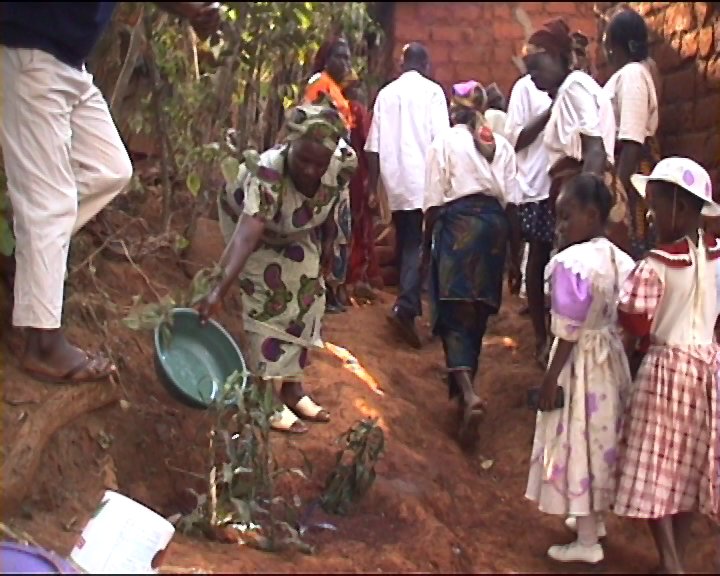

click to close
film@mediartplus.defon: +49 421 530431
fax: +49 421 5579428mediart+ film
Dunkakshof 5-7
D 28201 Bremen
Credits
script and direction
Ulrike Westermann
camera
Pavel Schnabel
montage
Gabriele Draeger
Silke Betscher
sound
Jens Breith
Laurent Desmetz
score
Heimo Schulte
singing
Evelyn Gramel
narrator
Martin Heckmann
Claudia Scholl
Ignatius Arthoro
directors assistant/ap
Ines Westermann
captions
Oliver Herrmann
interpreter
Bettina Rabitz
sound-studio
Corporate Acoustics
voice recording
Box
production
fechnerMedia GmbH /
mediart+ film
Stronger Than Fear D
2004
a film by Ulrike Westermann
>>> to the tv-version
Prolog
 Adolescents, almost still children, who risk their lives to escape their lack
of prospects in their own countries are labeled ‘economic refugees’
in the Western world. The film gives this term a face and a story and moves
the human into the forefront.
Adolescents, almost still children, who risk their lives to escape their lack
of prospects in their own countries are labeled ‘economic refugees’
in the Western world. The film gives this term a face and a story and moves
the human into the forefront.
Solomon Mforbei Fusi was 15 years old and lived in Bamenda, Cameroon. He
was meant to take his destined role within the family when he only wanted
to be free and independent.
His dreams of a better life end in the wheel bay of a plane. When the plane
lands and the wheels come out his body plunges into a German field.
Content
The Boy Who Fell From The Sky is buried in a small town called
Lauchingen – adopted post mortem. He gets a solemn funeral and a gravestone
made from shiny granite, with Africa and Cameroon engraved on it. The priest
says Solomon has been given a piece of home and time and again flowers appear
on his grave. However the priest does believe not everyone in Lauchingen would
have been so welcoming, had Solomon arrived alive.
I Take
You As My Parents is the title of the second part, filmed in France.
Four month before his death Solomon was found on the taxiway of the Paris’
airport Charles de Gaulle. He is telling the unbelievable story of his journey
in the wheel bay of an aero plane. Solomon’s foster mother praises him as
a good boy, who was not rough like all the others. His social worker regrets
that Solomon decided one day to return to Cameroon. A letter written by Solomon
at the time sounds irreconcilable and lonely. The addressee of the letter
remains Solomon’s secret.
The Long Lost Son is Solomon in the third chapter filmed with his family in Bamenda – Cameroon. The people he was living with speak very openly about him and his story, but also about their own expectations, judgments and moral. They draw up a contradictory picture of Solomon and we gain a very personal view into an African family. The impressions help to understand the pressure that lasts on the younger African generation. On one hand this generation is the social hope and perspective of their families, on the other hand many young Africans dream of a life as a free individual with the Western culture as their ideal in mind.
Statement
The commentary free style
of the film’s narrative allows for the protagonists to develop their part
and view of the events. It also allows the viewer their own encounter. The
style shows respect for the people and their openness. They are not being
reduced to catch phrases, but appear in a context.
As in Europe, in Africa it is unpopular to speak ill of the dead, especially if they are part of the own family. It is an expression of great trust by Solomon’s family towards a stranger - a foreigner - a European - the author to talk that openly and address internal family crises. After Solomon’s death some in the family looked for a guilty person, also within their own rows. This process is painful for all involved.
The objective of the author is not to establish a truth. She avoids the confrontation of contradictions, but leaves different truths to coexist. For herself she accepts the fact, that lies and self-deception are part of any person’s own truth.